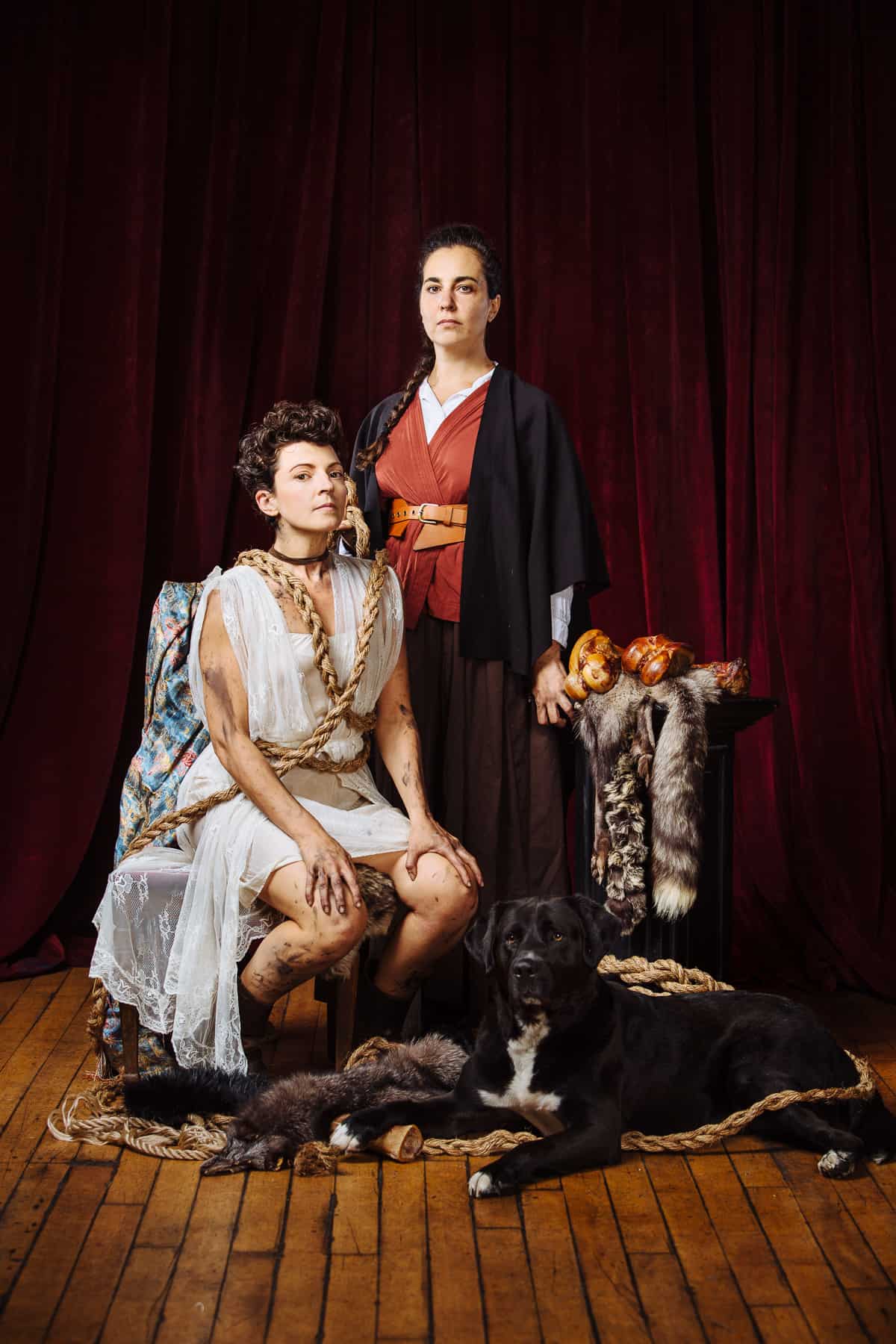Susanna Fournier’s new play, The Philosopher’s Wife, tells the story of an atheist philosopher in exile during a bloody religious war. He wants to return to the city to usher in a new age of reason, but he’s held back by his wife, whose increasingly animalistic behaviour has confounded him. In desperation, he hires a dog trainer, erupting into a vicious battle between the sexes.
We asked Fournier about the play this week.
SDTC: Do you see any parallels between the world we find ourselves in now and the world of The Philosopher’s Wife?
SF: Big time. [In the play], we enter a world where systems like gender, class and nation still dictate how much power you can access in the world, which is, unfortunately, still bang-on for how our own society functions.
Two of the characters are refugees fleeing religious violence and extremism in their homeland, while another is a woman chained up in the basement. As much as I wish these circumstances were made up, these are things that happen in our world all the time. What I love about creating genre work, and building new worlds, is that there’s this friction created between the allegorical world of the play and our own. That tension ignites our imagination, because we can no longer assume we know “how things work.”
What does the character of the philosopher’s wife represent?
She represents a lot of things to me, to the various artists who’ve interpreted her, and to audiences who’ve encountered her. Some days she represents the visceral anger I feel when I look at how many corrupt systems still shape our society (I wish I could transform into her and crush rape culture between my inner Rottweiler jaws). She’s also the animal in all of us–wild, playful, feeling, intuitive, and what can happen if someone experiences severe trauma. Her way of orienting herself in her world is about the social dynamic, about the body, impulse, and the emotional temperature in a room. These are ways we all, as animals, move through our world, but these ways of knowing aren’t valued much in contemporary culture.
How did this play take shape and evolve from its initial conception?
Eight years ago I was binge-watching dog-training shows, and I couldn’t get over how anxious dogs behave just like anxious people—expressing their dis-ease as depression, compulsion, violence, and over-excitement—but when a dog feels confident in its purpose and secure in its social power, it’s relaxed, playful, loving. A dog’s relationship to power dictates its way of being in the world. I don’t think there’s much difference between people and dogs.
I wondered what would happen if I made power systems, like sexism and class, really overt through the idea of actively training a person to become some idea of what they “should” be.
Developing the text, I worked with actors, Leora Morris (the director) and several dog trainers. The more I worked on the script, and with dog trainers, the less difference I [saw] between dog power dynamics and human power dynamics. I’m curious about how uncomfortable that assertion can make people.
What has it been like working with a female-led team? How do you think that has changed the outcome of the play?
Our female-led team brings a more nuanced, political and provocative vision to the play’s content and production because we carry the lived experiences and knowledge that comes with having female bodies in a sexist society. We ask different questions about the images we’re creating and can subvert a lot of assumptions around “femininity.” We also get the opportunity to spend our energy imagining and debating with one another over the play and production, as opposed to what often happens: spending all our energy fighting for a voice in the room.
What do you hope audiences take away from this play?
I want to entertain and provoke my audiences. When I tell people they’ll see a woman get trained like a dog in the play, their eyebrows usually go up. They’re amused, also a bit disturbed, but always curious.
I know I’ve succeeded when audiences come out of an experience fired up and debating with one another about the characters, the story and the meaning of the work. I hope they argue about how it ends. I hope the foreign yet familiar setting of the play invites them to see the how the world of this play isn’t so far from our own.
The Philosopher’s Wife opens at Native Earth’s AKI Studio (585 Dundas Street E) on December 4. Get tickets here.



 Follow Us On Instagram
Follow Us On Instagram
